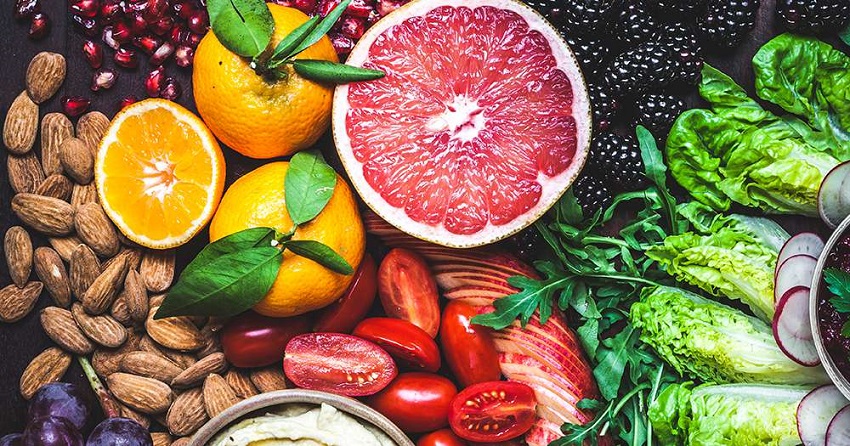Phytonutrients, also known as phytochemicals, are natural compounds found in plants that offer numerous health benefits to the human body. These bioactive substances have been extensively studied for their positive impact on various bodily functions. From boosting the immune system to protecting against chronic diseases, phytonutrients play a crucial role in maintaining overall well-being. In this article, we will explore the fascinating world of phytonutrients and their many advantages. The article is submitted by improvelifehere.com
Understanding Phytonutrients
Phytonutrients are essential nutrients derived from plants. They are responsible for the vibrant colors in fruits and vegetables, such as the red in tomatoes, green in spinach, and orange in carrots. These compounds help plants thrive in their environment and protect them from external threats like pests and UV radiation. When consumed by humans, they can provide numerous health benefits.
The Immune-Boosting Properties of Phytonutrients
One of the primary benefits of phytonutrients is their ability to enhance the immune system. They can stimulate the production and activity of immune cells, such as T cells and natural killer cells, which play a crucial role in defending the body against infections and diseases. Regular consumption of phytonutrient-rich foods can help reduce the risk of common illnesses and promote overall immune health. Discover the phytonutrients fruits and vegetables.
Phytonutrients and Their Antioxidant Power
Many phytonutrients possess potent antioxidant properties. Antioxidants neutralize harmful free radicals in the body, which can cause oxidative stress and damage cells. By combating free radicals, phytonutrients can help protect against various chronic conditions, including heart disease, cancer, and neurodegenerative disorders.
Anti-Inflammatory Benefits of Phytonutrients
Chronic inflammation is linked to a wide range of health issues, including arthritis, diabetes, and obesity. Phytonutrients have been found to possess anti-inflammatory properties that can help mitigate inflammation and promote better overall health.
Cardiovascular Health and Phytonutrients
Several phytonutrients are associated with improved heart health. They can help lower blood pressure, reduce cholesterol levels, and improve blood vessel function, all of which contribute to a healthier cardiovascular system.
Phytonutrients and Skin Health
Phytonutrients are not only beneficial internally but also externally. Many of these compounds can support skin health and protect against damage caused by UV radiation and pollution. They may also aid in reducing signs of aging and promoting a radiant complexion.
Phytonutrients and Weight Management
For those looking to manage their weight, incorporating phytonutrient-rich foods into their diet can be beneficial. Some phytonutrients have been linked to increased metabolism and improved fat-burning capabilities, making them a valuable addition to any weight loss plan.
Phytonutrients and Cognitive Function
As we age, cognitive decline becomes a concern for many individuals. Phytonutrients, particularly those with antioxidant properties, may help protect brain cells from damage and support cognitive function, potentially reducing the risk of age-related conditions like Alzheimer’s disease.
The Gut-Brain Connection and Phytonutrients
The gut-brain axis is a bidirectional communication system between the gut and the brain. Emerging research suggests that phytonutrients may influence the gut microbiota positively, leading to improved mood and mental well-being.
Phytonutrients and Bone Health
Maintaining strong and healthy bones is vital, especially as we age. Certain phytonutrients, such as isoflavones found in soybeans, may contribute to better bone density and reduce the risk of osteoporosis.
Phytonutrients and Eye Health
Eye health is another area where phytonutrients shine. Compounds like lutein and zeaxanthin found in leafy greens and colorful fruits can help protect the eyes from age-related macular degeneration and cataracts.
Phytonutrients and Cancer Prevention
While more research is needed in this area, some phytonutrients have shown promising results in cancer prevention. For instance, resveratrol in red grapes has been associated with inhibiting cancer cell growth.
Phytonutrients and Digestive Health
Fiber-rich plant foods contain phytonutrients that promote good digestive health. These compounds can aid in preventing constipation and supporting a healthy gut.
The Role of Phytonutrients in Detoxification
The body’s detoxification process is essential for eliminating harmful substances. Certain phytonutrients, like sulforaphane in cruciferous vegetables, can support the liver’s detoxification pathways.
Conclusion
Phytonutrients are nature’s gift to our health. From bolstering our immune system to promoting heart health and protecting against chronic diseases, these incredible compounds offer an array of benefits. By incorporating a colorful variety of fruits, vegetables, and whole grains into our diets, we can harness the power of phytonutrients and enjoy a healthier and more vibrant life.
FAQs
What foods are rich in phytonutrients?
Foods rich in phytonutrients include berries, leafy greens, tomatoes, carrots, broccoli, and whole grains.
Are there any side effects of consuming phytonutrients?
Phytonutrients are generally safe when consumed through a balanced diet. However, excessive supplementation may cause adverse effects in some individuals.
Can phytonutrients replace medications for chronic conditions?
Phytonutrients can complement a healthy lifestyle and may offer some benefits, but they should not replace prescribed medications for chronic conditions without consulting a healthcare professional.
Are phytonutrients suitable for children?
Yes, phytonutrients are beneficial for individuals of all ages, including children, as part of a balanced diet.
How can I incorporate more phytonutrients into my diet?
You can increase your intake of phytonutrients by including a wide variety of colorful fruits, vegetables, legumes, nuts, and seeds in your daily meals.
